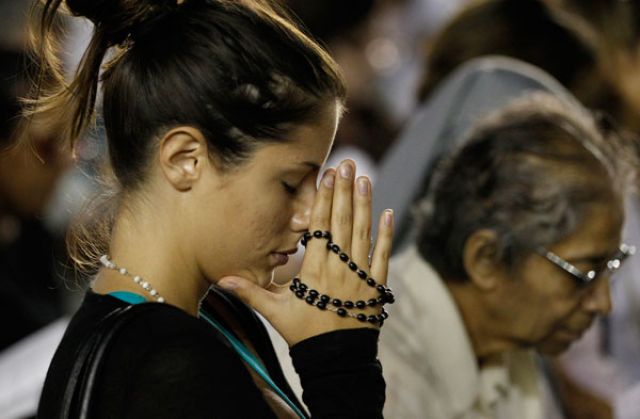In a document entitled “The Essential Elements of Evangelization Today,” produced by the Canadian Conference of Catholic Bishops’ Episcopal Commission for Doctrine, the bishops acknowledge the Catholic faith has become “one option among others claiming the same character of truth and demanding the same adherence.” No longer can one assume a common Christian foundation, the document says. Pluralism is a given and must be a starting point for evangelization.
“In many respects, our situation is like that of the first Christians, who had the task of bringing the Good News into a world of contrasting religious and philosophical currents,” it says. “We need to rediscover the vigour of the early Church and be inspired by its action, so that our proclamation of the Gospel will be credible and compelling to a world enamored with authenticity, broken by divisions and marked by inequalities.”
The document focuses on three aspects of the early Church that can guide evangelism today: martyria or witness, koinonia or communion, and fraternity and diakonia, service.
“No disciple can communicate the Gospel in a credible way if he or she has not had a real interior encounter with Jesus,” the document says. “This ‘being with Jesus’ transforms all existence and gives it meaning; it is ‘living with Jesus’ that introduces the believer into the inner life of the Father, borne on by the breath of the Holy Spirit.”
That personal encounter with Jesus as “good, positive and beautiful” helps those proclaiming the Good News do so with authenticity.
“Amid the clamour of the discordant voices of society, this ‘word’ will only be attractive and compelling if it is brought by credible witnesses who have themselves been transformed by it,” the bishops say.
Koinonia is the “love lived in Christian communities witness to the authenticity of Jesus’ mission and becomes a sign of the credibility of His message,” the document says. “The first Christian communities spontaneously understood this.
“They were committed to a fraternal life that was manifested particularly in the sharing of goods. We, too, must work to build communities where love reigns.”
That communion of love must be manifested in families, parishes and “all ecclesial groups, whether old or new communities of consecrated life, secular institutes or associations of the lay faithful,” the document says.
“The proclamation of the Gospel will draw on the support of praying and fraternal communities, of communities determined to devote themselves to ‘the breaking of bread’ (Acts 2:42), that is to celebrating the Eucharist,” the document says. “It is the Eucharist which, uniting them to the loving action of Christ’s self-offering to His Father, will allow them to live a Trinitarian love that will strengthen their bonds of unity.”
And from the Eucharist, which “opens them to the world’s suffering,” comes diakonia, “the witness of selfless service,” the document says.
“United by the Eucharist as a community of love, the Church community cannot withdraw inward, only thinking of itself. It needs to radiate outward, impelled by the Spirit towards the whole of humanity awaiting salvation.”
Borrowing liberally from Scripture and from the words of Pope Francis, Pope Benedict XVI and others, the document reminds readers “the poor, the needy, the downtrodden, are a presence of Christ Himself.”
“This concern for the poor is one of the most meaningful signs of credibility.”

